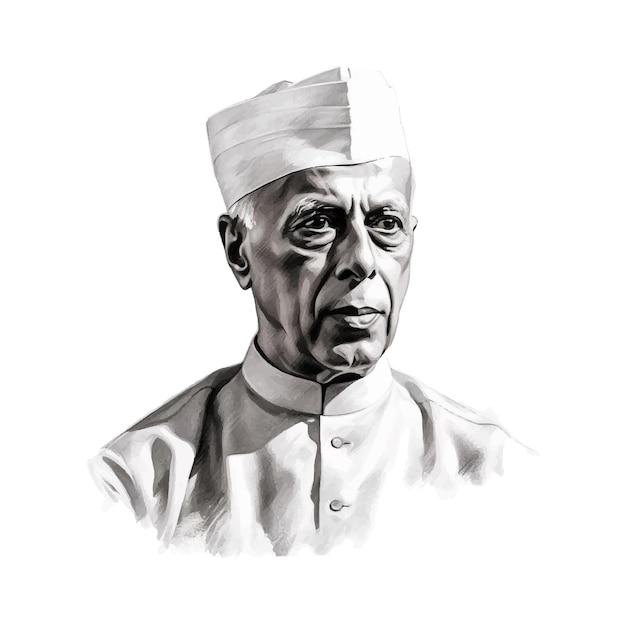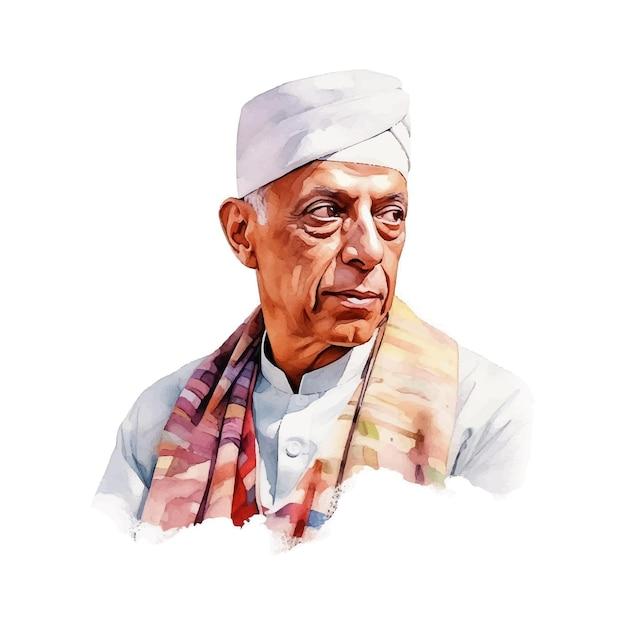Jawaharlal Nehru, the first Prime Minister of independent India, is a towering figure in the country’s history. Serving as the nation’s leader from 1947 to 1964, Nehru played a pivotal role in shaping India’s destiny after gaining freedom from British colonial rule. His leadership qualities were instrumental in establishing India as a democratic and secular nation.
Nehru possessed numerous qualities that made him an exceptional leader. His vision for India’s future, his commitment to social justice, and his dedication to the ideals of democracy set him apart. One of the key aspects of Nehru’s leadership was his ability to connect with people from all walks of life. His charismatic personality and empathetic nature allowed him to resonate with the masses, making him a beloved leader.
In this blog post, we will delve deeper into the leadership qualities that defined Nehru. We will explore his aversion to sermonizing and his belief in leading by example. We will also uncover his insightful suggestions to his daughter Indira in a notable letter, as well as his profound thoughts on the significance of the natural world. Join us as we journey through Nehru’s life and legacy, uncovering the traits that made him an esteemed leader in the history of India.

What Leadership Qualities Did Nehru Have?
Nehru’s Charismatic and Visionary Leadership
Jawaharlal Nehru, the first Prime Minister of India, possessed a remarkable array of leadership qualities. He was known for his charismatic and visionary approach, which played a pivotal role in shaping the destiny of a newly independent India. Let’s delve into some of the key leadership qualities that made Nehru such an exceptional leader.
Inspiring Communication Skills
Nehru had a knack for capturing people’s attention with his eloquent speeches. His words resonated with the masses, instilling hope and inspiring action. Whether addressing national issues or conveying his visions for the future, Nehru’s communication skills were second to none. He had a unique ability to connect emotionally with his audience, leaving a lasting impact on the minds of the people.
Progressive thinking
Nehru believed in the power of progress and modernity. He was a staunch advocate for industrial development, scientific research, and technological advancement. Nehru’s progressive mindset propelled India towards growth and paved the way for its emergence as a global player in the following decades. His clear focus on the future ensured that India was not left behind in the rapidly changing world.
Diplomatic finesse
Nehru was hailed as a skilled diplomat, adept at navigating the complexities of international relations. He played a significant role in shaping India’s foreign policy, emphasizing the importance of maintaining peaceful relationships with other nations. Nehru’s ability to negotiate and establish bridges of understanding helped elevate India’s global stature and fostered cooperation among nations.
Empathy and Compassion
Nehru possessed a deep sense of empathy and compassion towards the marginalized sections of society. He firmly believed in the principles of social justice and worked tirelessly to uplift the disadvantaged. Nehru’s efforts to create a more equitable society laid the foundation for India’s inclusive growth and development.
Resilience in the Face of Challenges
As a leader, Nehru faced numerous challenges, both internal and external. However, his resilience and unwavering determination never wavered. Even in the face of adversity, Nehru remained steadfast in his pursuit of progress and nation-building. His ability to adapt to changing circumstances and inspire others to persevere played a crucial role in overcoming obstacles and driving India forward.
Nehru’s leadership qualities were the driving force behind India’s transformation during its formative years as an independent nation. His charisma, visionary thinking, diplomatic finesse, empathy, and resilience continue to inspire generations. Nehru’s legacy serves as a reminder that effective leadership has the power to shape the destiny of a nation and make a lasting impact on its people.

FAQ: What Leadership Qualities did Nehru Possess?
Jawaharlal Nehru, the first Prime Minister of India, was a charismatic leader who left an indelible mark on the country’s history. His leadership qualities and principles continue to inspire generations. In this FAQ-style subsection, we delve into some intriguing questions to understand Nehru’s unique approach to leadership.
Why Did Nehru Detest Sermonizing
Nehru was known for his aversion to sermonizing. He believed that people should be encouraged to think critically and make their own decisions, rather than being preached to or told what to do. Nehru’s leadership was grounded in a democratic spirit, where he valued open dialogue and encouraged the exchange of ideas. He preferred to lead by example rather than lecturing others, earning him the respect and admiration of many.
What Suggestions Did Nehru Offer to Indira in His Letter
In a heartfelt letter to his daughter, Indira Gandhi, Nehru shared some profound suggestions. He emphasized the importance of humility, advising her to avoid arrogance and always remain in touch with the ground realities of the people she served. Nehru also stressed the significance of maintaining integrity, as true leadership requires honesty and a firm adherence to moral principles. He further encouraged Indira to prioritize the welfare of the common people, as they hold the key to a prosperous and harmonious society.
Where is the Text “The Book of Nature” Extracted From
“The Book of Nature” is a phrase often used by Nehru to describe his deep reverence for the natural world. It symbolizes his belief that nature holds invaluable lessons for humanity. Nehru saw the natural world as a source of inspiration, wisdom, and solace. He emphasized the need to observe and learn from nature, understanding that its intricate systems and delicate balance can guide us in creating a harmonious society.
What Did Nehru Mean by the Desire to Hide Anything
According to Nehru, the desire to hide anything stems from a lack of confidence and trust in oneself and others. As a leader, he believed in transparency, openness, and the sharing of information. Nehru understood that hiding facts or knowledge only breeds suspicion and hampers progress. He encouraged a culture of honesty and openness, where people could express themselves freely and work towards collective growth.
What Leadership Qualities Did Nehru Possess
Nehru possessed a multitude of leadership qualities that contributed to his statesmanship. Here are a few key qualities that defined Nehru as a leader:
-
Vision and Forward Thinking: Nehru had a clear vision for a modern and progressive India, looking beyond the immediate challenges to envision a better future.
-
Charismatic and Inspirational: Nehru’s charisma and ability to connect with people on an emotional level made him a beloved leader. His speeches and writings inspired millions, instilling a sense of patriotism and unity.
-
Intellectual Brilliance: Nehru was a well-read and highly intellectual leader. His vast knowledge and literary prowess enabled him to articulate complex ideas in a simple and relatable manner.
-
Commitment to Democracy: Nehru firmly believed in democracy and the power of the people. He championed civilian rule and ensured the participation of all citizens in the nation-building process.
-
International Outlook: Nehru’s leadership extended beyond India’s borders. He played a crucial role in shaping the non-aligned movement and fostering strong international relationships.
-
Progressive Social Policies: Nehru advocated for social reforms, women’s rights, and the upliftment of marginalized communities. He believed in equality and social justice, laying the foundation for a more inclusive society.
In conclusion, Nehru possessed a unique blend of qualities that made him an exceptional leader. His legacy continues to inspire leaders worldwide, reminding us of the importance of vision, charisma, intellectual prowess, democracy, international cooperation, and social progress.
Nehru’s leadership qualities were pivotal in shaping the destiny of a nation. His commitment to democracy, intellectual brilliance, and progressive policies transformed India into a modern republic. By avoiding sermonizing, valuing nature, and encouraging transparency, Nehru exhibited remarkable leadership qualities. His vision and charisma served as beacons of inspiration for generations to come, leaving an enduring impact on the world stage.
Note: This blog post was generated by an AI language model.
